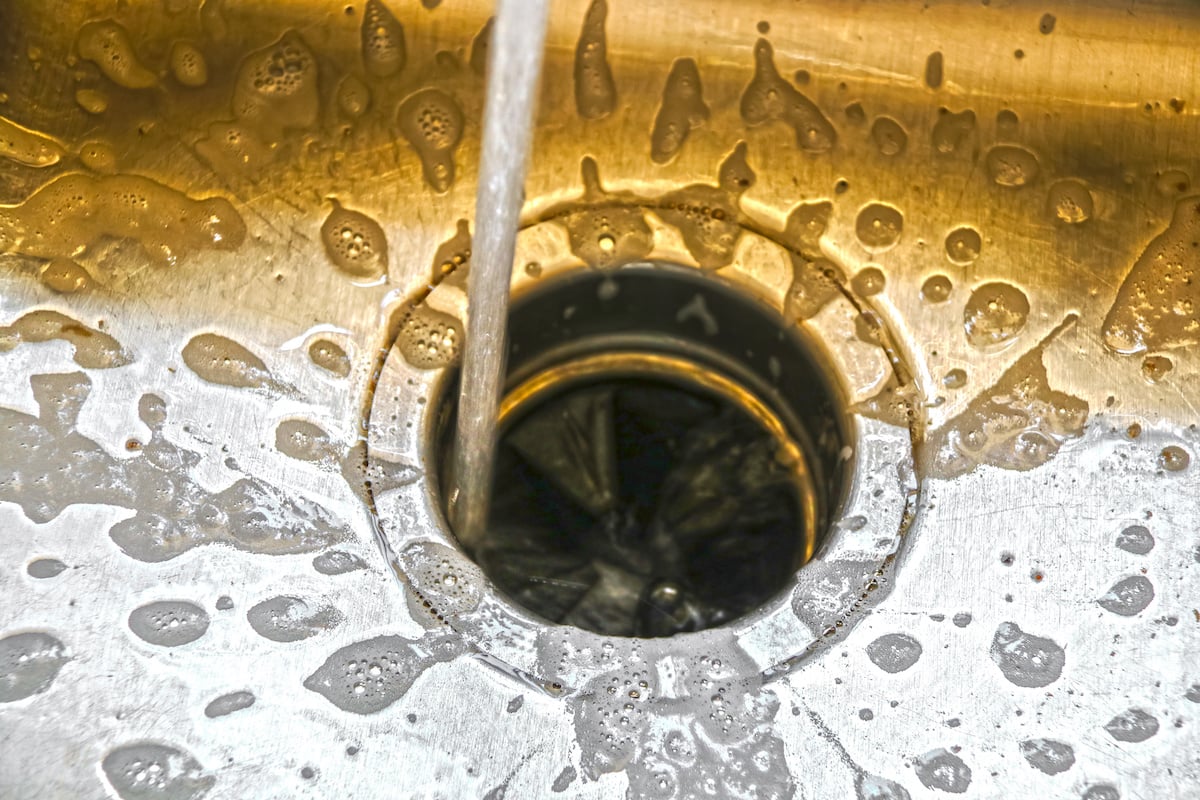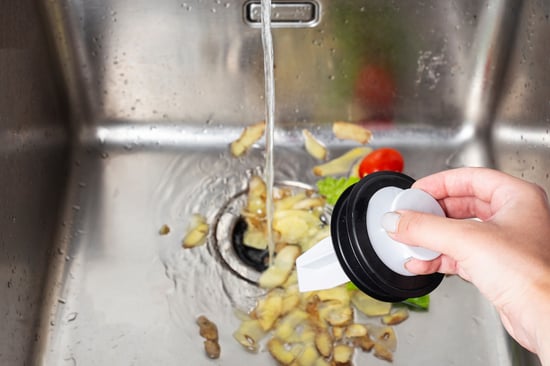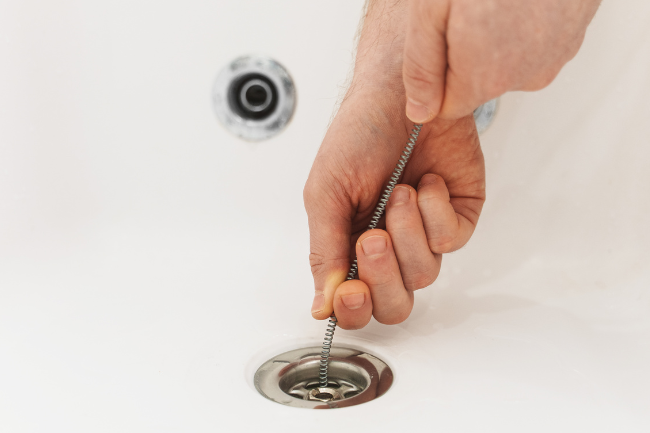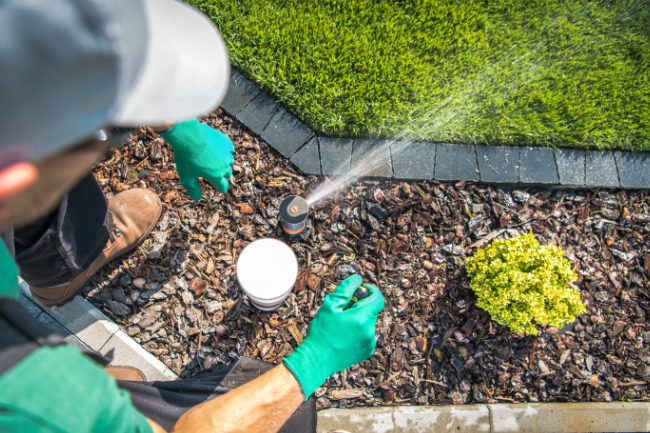6 Garbage Disposal Myths + Tips for Maintenance
Posted by William Heinselman on

Garbage disposals are installed in more than half of American homes today. In fact, they are often marked as a must-have option on apartment and home buyers' wish lists when searching for places to live because garbage disposals make cleaning significantly easier.
Although garbage disposals have been used widely for decades, there are still a lot of myths surrounding their use and maintenance. While some of these misconceptions are harmless, others have the potential to cause serious damage to your disposal unit or to your pipes.
Let’s break down how garbage disposals work and uncover the truth behind some of these common myths. We’ll also provide some useful tips so you can keep your garbage disposal running smoothly for as long as possible.
How Does a Garbage Disposal Work?
Garbage disposals use an electric motor that is hardwired or plugged into a 120-volt receptacle located at the back of the sink cabinet that powers the grinding chamber. The grinding chamber is a ring of shredding impellers, similar to teeth, in a flywheel that breaks down food. As the motor spins the flywheel, food and water that enter the grinding chamber are spun by a centrifugal force into the shredding ring.
An impeller arm and plate then further push the food particles and liquid down the sink drain. Dishwater runs through the garbage disposal while it is on to help grind up larger particles before they enter the drain types.
How Long Does a Garbage Disposal Last?
Most garbage disposals last about 10 years, but regular maintenance and upkeep can extend the life of a garbage disposal to about 15 years. Without proper care, you might run into several problems and depending on the degree of damage, you could be in need of a replacement system sooner than you think.
Factors That Impact the Lifespan of Your Garbage Disposal
To keep your garbage disposal in good condition for as long as possible, there are several things to keep in mind.
What is Put Down the Garbage Disposal
Regularly putting greasy or fibrous items down the garbage disposal causes its motor and blades to wear down. This decreases the useful lifespan of your garbage disposal and leaves it more susceptible to clogging.
Frequency of Garbage Disposal Usage
The more you use your garbage disposal, the more the impellers are working and wearing down. While it’s great to use your garbage disposal, keep in mind that the more you use it, the faster its quality will decline.
The Quality of the Garbage Disposal You Are Using
Newer garbage disposal models last longer than older models. When you make the choice to purchase a new heavy duty garbage disposal instead of a cheaper option, your investment will pay off in the long run.
6 Garbage Disposal Maintenance Myths
In order to keep your garbage disposal well maintained, you need to know how to take care of it. There’s a lot of information out there that tells you what you should and shouldn’t be doing, but that can quickly become difficult to sift through. Here’s a list of debunked garbage disposal maintenance myths to help you properly take care of your drain.
1. Garbage Disposals Have Blades That You Can Sharpen
Garbage disposals don't have standard blades. Instead, disposals use a system of small shredding impellers that spin at high speeds to grind up food waste. These tools can’t be sharpened and instead rely on speed and force to shred items you put through the disposal.
Many homeowners have tried putting eggshells or ice into their garbage disposals in an attempt to keep them sharp. The reality is that dumping ice into the disposal can help to move waste through the system, but it won’t sharpen the metal.
Additionally, placing shells down the disposal actually does more damage than good. Egg shell membranes become entangled in the impellers and the ground up particles can easily create clogs in your pipes.
2. You Must Run Hot Water When Using the Garbage Disposal
It’s commonly advised to avoid putting grease and oils down the drain because these materials can solidify when they’re cooled, leading to blocked pipes. So, you might feel the need to run hot water to keep these fats in liquid form.
Although you shouldn't be putting any fats or oils down the drain, if you run the disposal with cold water, it keeps them in solid form that can be ground up into tiny particles. This way, they’re less likely to cause clogs as they flow through the plumbing with the rest of the food waste.
3. Lemons Clean Your Garbage Disposal
Running lemons and limes through your garbage disposal can make your sink smell better, but it doesn't make your garbage disposal any cleaner. Even worse, the pleasant citrus scent can mask the foul odors that often warn you about a more serious problem with your plumbing. The citric acid in the fruits can't clean or disinfect your disposal, but it can cause the metal inside the disposal to corrode over time.
4. You Can Put Any Food Waste Through Your Garbage Disposal
Garbage disposals can handle a lot of waste, but they do have limitations. Hard, solid waste such as eggshells, chicken bones, or fruit pits will rapidly wear down your disposal. Stringy, fibrous foods like corn husks, celery, and banana peels can become entangled in the impellers and clog up the drain. Starchy materials like potato peels are often quite difficult for disposals to handle as well.
Instead of putting tough food waste down the drain, throw it in the trash. This small difference can prevent unwanted damages and extend the lifespan of your garbage disposal.
5. Garbage Disposals Are Bad for the Environment
Many past legal restrictions on garbage disposals were put in place due to concerns about the amount of food waste they would add to public sewer systems. Today, modern wastewater processing systems are more than capable of handling anything a disposal can force down the drain.
In fact, treating food waste in the water is far more energy efficient than disposing of trash in a landfill. When food particles are separated from the wastewater, the gas from decaying biological materials can be easily captured and converted into useful energy.
6. The Sink Must Be Empty to Use the Garbage Disposal
When you use the garbage disposal in your kitchen, it’s okay to have items in the sink, but if you choose to do that, be careful and understand the risks. While dishes won’t interfere with the disposal, items in the sink could fall down the drain. Silverware or small items can damage the impellers if they accidentally make their way into the disposal.

Garbage Disposal Maintenance Tips
Taking care of your garbage disposal is easy. Review these garbage disposal maintenance tips that you can handle on your own to extend the lifespan of your disposal.
Know What Not to Put Down Your Garbage Disposal
Be mindful of what food waste is going into your garbage disposal. While there are lots of items that can be put into the disposal without any issues, there are some that could lead to damages down the line. This includes:
- Popcorn kernels
- Banana peels
- Apple seeds
- Celery stalks
- Corn husks
- Onion skins
- Bones
- Oils and fats
Use Proper Cleaning Techniques
Placing harmful chemicals down your drains can cause pipe problems over time. Try a natural cleaning solution such as baking soda and vinegar. This pulls up grime and sludge that you can then wipe away and dispose of.
If you don’t have those ingredients on hand, try grinding ice and pouring a cup of rock salt in your drain. These materials are quite abrasive and will also lift any remaining residue within your sink drain.
Be Cautious When Fixing a Broken Garbage Disposal
Garbage disposals are strong machines that require a lot of power to grind up food waste. So, sticking your hand down the disposal isn't a good idea when you need to remove an object that’s gotten stuck. Believe it or not, garbage disposal safety is very important for proper maintenance.
When an item is lodged inside the disposal, it might temporarily stop the impellers, which means they may continue to spin when you dislodge the object, potentially causing injury. When fixing a garbage disposal, you should always turn off the system first before using pliers to dislodge the object.
With most disposals, there will be a switch beneath the bowl of the sink, or you might need to unplug it from the power source. If that doesn't work and you are unable to clear a clog on your own, you may need to contact a professional plumber in your area.
Regularly Clean Your Garbage Disposal
To keep your garbage disposal working, it should be cleaned regularly. We recommend cleaning your disposal and drain every two weeks or so depending on usage. Mark your calendar and schedule regular cleanings of your garbage disposal to ensure you not only leave behind a funky smell, but you extend the life of your disposal as well.
Keep Your Garbage Disposal in Good Condition
Knowing the truth about your garbage disposal can help you to take the necessary steps to keep your unit in peak operating condition for years to come. In the event that your garbage disposal does breakdown or become clogged, hiring experienced plumbing professionals you can rely on is a good idea.
Express Sewer & Drain has a team of expert plumbers in the Sacramento area to help you keep your garbage disposal running smoothly. If you ever run into any problems, don’t wait to reach out to us right away!
Topics: Home Plumbing, Drain Cleaning and Repair







